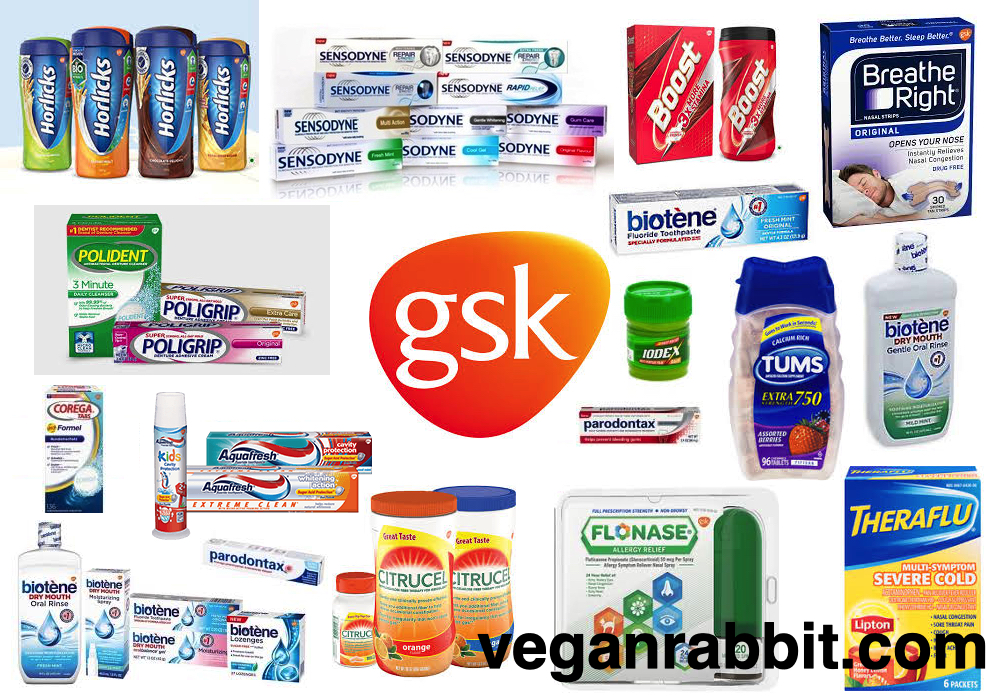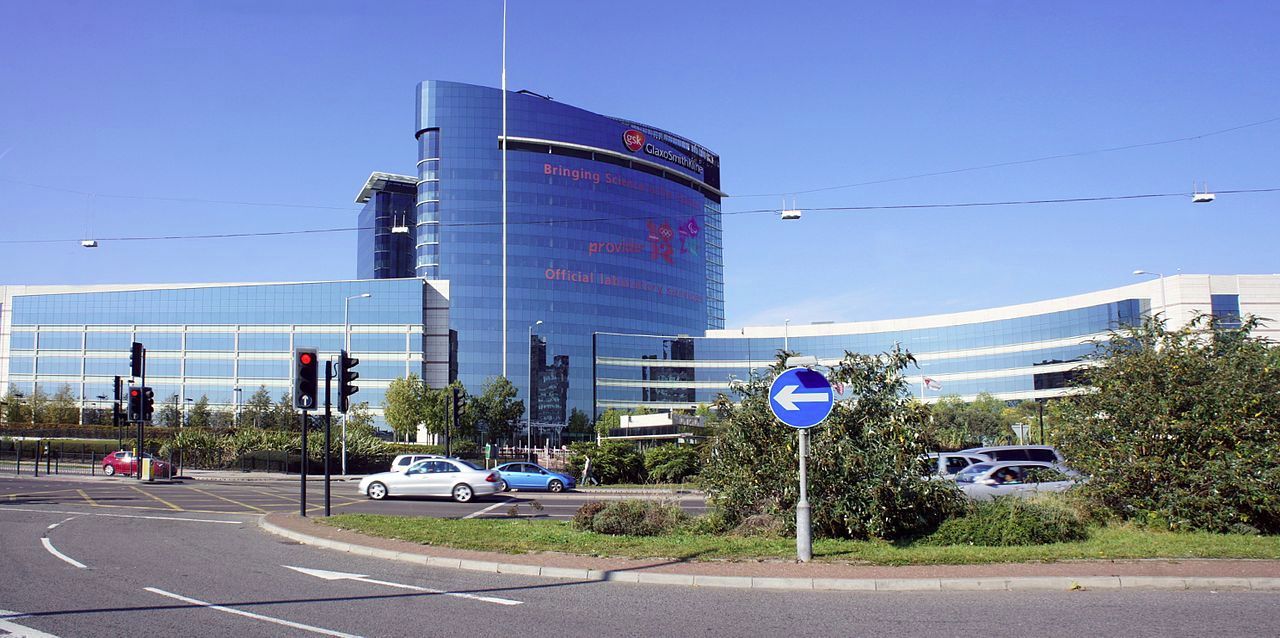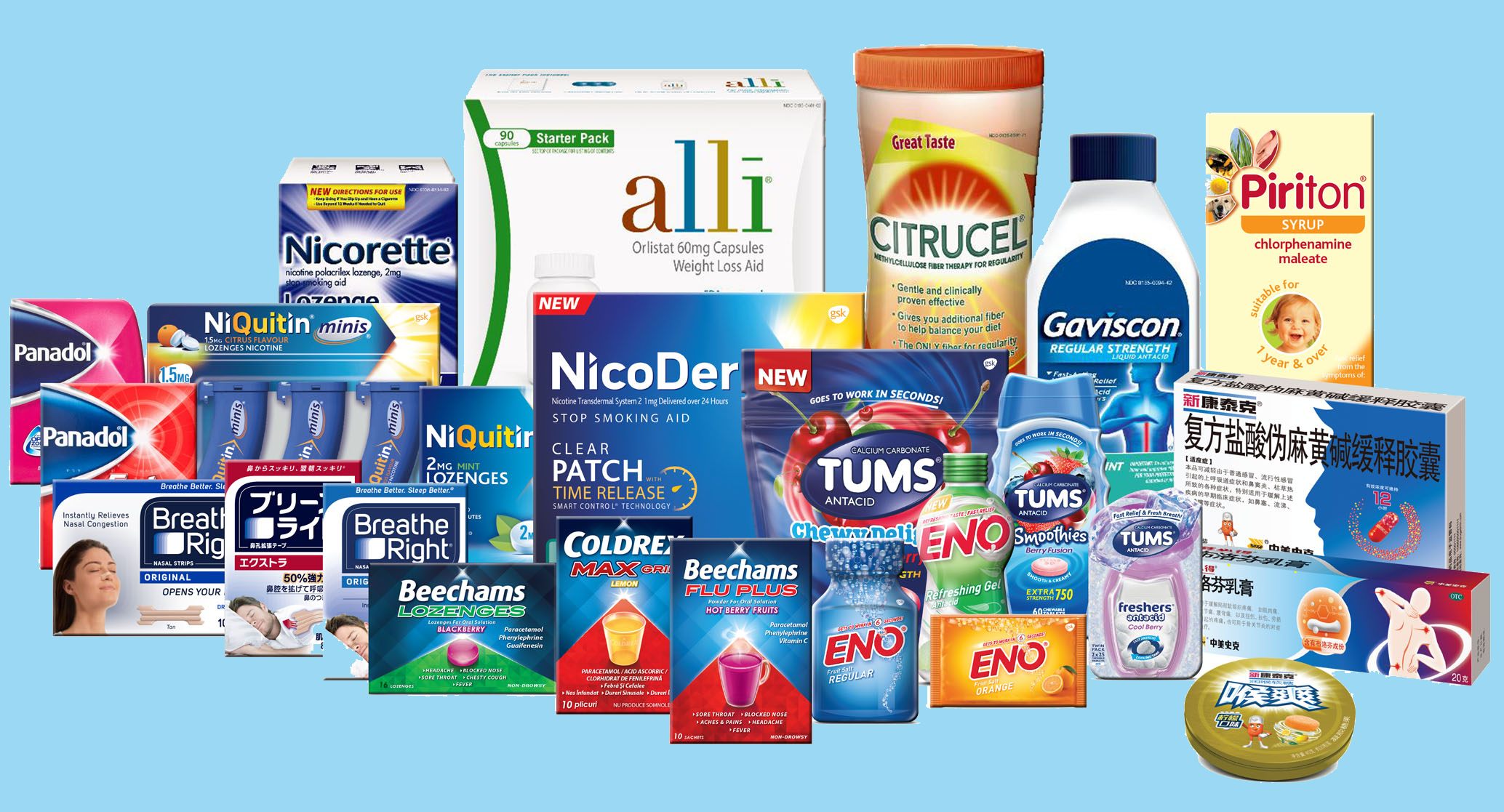

Glaxosmithkline Ownership Search
2004
GlaxoSmithKline
company profile
Francis Weyzig
Amsterdam, October 2004 GlaxoSmithKline company profile 2 Summary Business description GlaxoSmithKline (GSK) is one of the world’s largest research-based pharmaceutical corporations that discovers, develops, manufactures and markets branded human health products. Headquarters: UK, with additional operational headquarters in the USA Global presence: about 160 countries Primary markets: USA, France, Germany, UK, Italy and Japan Employees: approximately 103,000 GSK key figures for 2003 (in £ million) Sales 21,441 Materials and production costs 4,188 Marketing and administration 7,563 R&D expenditures 2,770 Operating income 6,920 Net profit 4,765 GSK has two main business divisions, pharmaceuticals and consumer healthcare. This profile deals with the pharmaceuticals division, which generates 85% of GSK’s sales. The five largest selling GSK products are Seretide/Advair for asthma and Chronic Obstructive Pulmonary Disease (COPD); Paxil/Seroxat and Wellbutrin, both antidepression drugs; Avandia/Avadamet for type 2 diabetes; and the antibiotic Augmentin. Each of these drugs generated above £800 million of sales in 2003. GSK produces a broad range of products of special importance to developing countries, including: Anti-malaria drugs Zentel (albendazole), for de-worming and the prevention of lymphatic filariasis Pentosam, against leishmaniasis Anti-retrovirals (ARVs) for the treatment of HIV/AIDS Tuberculosis drugs Vaccines for developing countries Corporate Social Responsibility (CSR) CSR refers to the responsibility of a company for the social, ecological and economic impacts of its operations. GSK follows a proactive and comprehensive CSR approach. In 2003, the company formally adopted a set of Corporate Responsibility Principles. The company is highly transparent about its CSR policies and has a clear governance structure on CSR. Reporting about CSR performance is still limited on some issues, such as employment practices and internal monitoring on compliance with the company’s Code of Conduct. Recent criticism concerning GSK’s CSR performance includes fraudulent patent manoeuvres, irresponsible drug promotion and tax evasion. GSK’s policy for access to medicines in poor countries is outlined in its 2001 publication Facing the Challenge. The company identifies three key areas in which it can make a valuable contribution: R&D for diseases in poor countries Sustainable preferential pricing Community investment GSK has provided voluntary licenses for the generic production of HIV/AIDS drugs in subSahara Africa and offers a considerable range of medicines and vaccines at preferential prices. Furthermore, GSK has a large R&D portfolio for diseases relevant to developing countries and is also committed to undertake R&D projects on which it does not expect a commercial return. Compared to other pharmaceutical companies, GSK has a comprehensive and progressive policy for access to medicines. Global Public-Private Initiatives (GPPIs) GPPIs bring together different partners to address health problems in poor countries. In each of the three areas mentioned above, GlaxoSmithKline company profile 3 GSK is actively involved in GPPIs. It participates R&D partnerships to speed the development of tuberculosis and malaria drugs and various types of vaccines, including a dengue, malaria and rotavirus vaccine. The company is also a partner in two preferential pricing frameworks: Accelerating Access Initiatives (AAI) Global Alliance for Vaccines and Immunisation (GAVI) GPPIs for community investment include: Global Alliance for the Elimination of Lymphatic Filariasis (GAELF) GSK African Malaria Partnership (AMP) Each company participating in the AAI individually offers preferential prices for its anti-retrovirals. For the poorest countries, GSK sets a single not-for-profit price. As of December 2003, the number of HIV patients in Africa receiving ARVs provided by all AAI companies combined was only about 150,000. The GAVI was established in 1999 to expand the widespread use of vaccines in developing countries. The pharmaceutical industry is represented in the GAVI Board. The GAVI has identified three priority diseases: Hepatitis B, Haemophilus influenza type b and yellow fever. This focus has been criticized. GSK is a major supplier of Hepatitis B vaccines to GAVI, with supplies worth over $200 million for the period 2001-2004. The GAELF is GSK’s flagship community programme. It was founded in 1998, aiming to eliminate lymphatic filariasis by 2020. GSK has committed to provide as much of its drug albendazole as required until the disease is eliminated. The drug is administered through national programmes in 34 countries. GSK also contributed cash grants and expertise. The total quantity of required albendazole for 20 years is estimated at 6 billion tablets, with a value of some $1 billion (at wholesale prices). The AMP was established in 2002 to reduce malaria infections and improve the management of the illness. The partnership targets seven African countries. National ministries of health and international NGOs are directly involved. GSK provided a £1.5 million grant to fund country programmes for three years. During this period, the company seeks to demonstrate the success of the partnership and attract other donors. In 2003 the total value of GSK’s product, cash and in-kind donations was £338 million. Analysis of GPPI involvement Although the global community partnerships of GSK have a philanthropic nature, they also serve to build pride with employees. These GPPIs also help to build relationships with governments and other stakeholders. The Hepatitis B vaccine supplies to GAVI generate large businesses for GSK as well. It is positive that GSK’s support for GPPIs forms part of a broader policy on healthcare in developing countries. GPPIs like the AAI and R&D partnerships are directly linked to the company’s core business and CSR policy. GSK dedicates considerable resources to GPPIs and is transparent about its contributions. Lack of transparency about partnership agreements, for example for the GAELF and GPEI, prevents full external scrutiny. GSK’s large donations to global community partnerships also raise a few concerns. Philanthropic contributions might be inappropriate if they would be indirectly supported by irresponsible business practices, such as tax evasion. Furthermore, the time-scale of financial commitments like the grant to the AMP is relatively short. Finally, responsibilities may be transferred from donor governments to the company, but the root of this problem lies of course with donor governments. GlaxoSmithKline company profile 4 Contents List of acronyms…………………………………………………………………………….. 5 1 General characteristics ……………………………………………………………….. 7 1.1 Corporate headquarters…………………………………………………………… 7 1.2 A short history …………………………………………………………………….. 7 1.3 Ownership structure ………………………………………………………………. 7 1.4 Business profile……………………………………………………………………. 8 1.5 Business strategy ………………………………………………………………….. 9 1.6 Key figures ……………………………………………………………………….. 10 1.7 Medicines of special importance to developing countries………………………. 12 2 CSR policy: general ……………………………………………………………………17 2.1 CSR issues in the pharmaceutical sector ………………………………………… 17 2.2 Positive and negative publicity ………………………………………………….. 17 2.3 Policies……………………………………………………………………………. 19 2.4 Implementation and governance ………………………………………………… 21 2.5 Supply chain responsibilities …………………………………………………….. 21 2.6 Stakeholder involvement ………………………………………………………… 22 2.7 Transparency and reporting ……………………………………………………… 22 2.8 Independent verification…………………………………………………………. 23 2.9 Conclusion………………………………………………………………………… 23 3 CSR policy: medicines for developing countries…………………………………….25 3.1 Patents……………………………………………………………………………. 25 3.2 Preferential pricing ………………………………………………………………. 28 3.3 R&D……………………………………………………………………………….. 32 3.4 Conclusion………………………………………………………………………… 33 4 GPPI involvement ……………………………………………………………………..34 4.1 Overview………………………………………………………………………….. 34 4.2 R&D partnerships…………………………………………………………………. 35 4.3 Accelerating Access Initiative (AAI) ……………………………………………… 36 4.4 Global Alliance for Vaccines and Immunisation (GAVI) …………………………. 37 4.5 Global Alliance for the Elimination of Lymphatic Filariasis (GAELF)……………. 39 4.6 GSK African Malaria Partnership (AMP) ………………………………………….. 41 5 GPPI policies……………………………………………………………………………42 5.1 The rationale for GPPIs ………………………………………………………….. 42 5.2 Management of GPPIs inside the company………………………………………. 43 5.3 Selection of Global Community Partnerships ……………………………………. 44 5.4 GPPI strategies …………………………………………………………………… 44 5.5 Valuation of drug donations ……………………………………………………… 45 5.6 GCP budget and total support through GPPIs……………………………………. 45 6 Conclusions on GPPIs ………………………………………………………………….47 GlaxoSmithKline company profile 5 List of acronyms 3TC Epivir AAI Accelerating Access Initiative ADIP Accelerated Development and Introduction Plan AMP GSK African Malaria Partnership ARV Anti-retroviral AZT Retrovir CBD Convention on Biological Diversity CSR Corporate Social Responsibility COPD Chronic Obstructive Pulmonary Disease DEC Diethylcarbamazine citrate DTC Direct-to consumer (advertising) DTP Diphteria-tetanus-pertussis (vaccine) GAELF Global Alliance to Eliminate Lymphatic Filariasis GAVI Global Alliance for Vaccines and Immunisation GPPI Global Public-Private Initiative GSK GlaxoSmithKline IFPMA International Federation of Pharmaceutical Manufacturers Associations IPPPH Initiative on Public-Private Partnerships for Health LF Lymphatic filariasis MDP Merck Mectizan Donation Programme MIM Multilateral Initiative on Malaria MMR Measles-mumps-rubella MMV Medicines for Malaria Venture MVI Malaria Vaccine Initiative NGO Non-Governmental Organization OECD Organization for Economic Cooperation and Development OTC Over-the-counter (drugs) PAHO Pan-American Health Organisation PATH Program for Appropriate Technology in Health PhRMA Pharmaceutial Research and Manufacturers of America RBM Roll Back Malaria TB Tuberculosis TRIPS Trade-Related aspects of Intellectual Property rights UNICEF United Nations Children’s Fund USTR United States Trade Representative WHO World Health Organization WTO World Trade Organization GlaxoSmithKline company profile 6 Introduction This report forms part of a broader research project on the role of companies in publicprivate partnerships (PPPs). Such collaborations have become an increasingly important way to stimulate sustainable development. The research project aims to contribute to a better understanding of the rationale, functioning and effectiveness of these partnerships. This report focuses Global Public-Private Initiatives (GPPIs) for healthcare in developing countries. These GPPIs are a specific type of public-private partnerships. The report assesses company contributions and the rationale for industry involvement with GPPIs. It does not evaluate outcomes or effectiveness, nor does it deal with the governance and functioning of the partnerships in much detail. These issues are addressed in separate reports, focusing on four specific initiatives (GPEI, GAELF, RBM Partnership, Stop TB). Field studies on the implementation of these programmes in developing countries form part of the broader research project. This company profile analyses GlaxoSmithKline (GSK), a large pharmaceutical corporation, and its involvement in GPPIs. The report consists of three parts: 1. a description of the business of the company (chapter 1); 2. an analysis of its corporate social responsibility (CSR) policies (chapters 2-3); 3. a discussion of its role in GPPIs and the contributions to these partnerships (chapters 4-6). This integral approach allows to relate GSK’s involvement with GPPIs to the core-business of the company and to broader company strategies and policies. It should be emphasized that a company’s support for PPPs (or GPPIs) is not the same as its CSR performance. PPPs and CSR should be clearly distinguished. CSR, as defined in the report, covers a broad range of issues that are all directly related to the core-business of a company (environmental issues, labour conditions, access to medicines, competition policy, etc.). CSR performance therefore primarily depends on how a corporation manages its core-business. In certain cases, PPPs may be directly related to the business operations of a company and address issues that can reasonably be considered a responsibility of the company. There will then be a link between PPPs and (a specific area of) CSR performance. However, in other cases PPPs may be completely unrelated to a company’s core-business, especially when company contributions consist of cash donations only. Such initiatives are not linked with CSR at all and can be classified as corporate philanthropy or charity. Finally, it should be noted that the report focuses on a few large GPPIs that were selected because of their relevance for the broader research project. This company profile does not provide a complete overview of the PPPs supported by GSK.
https://www.somo.nl/wp-content/uploads/2004/10/Company-profile-GlaxoSmithKline.pdf
GlaxoSmithKline chef: onze medicijnen werken niet op meeste patiënten
GlaxoSmithKline (GSK), formerly Glaxo Wellcome, British-based pharmaceutical company with research-and-development centres in the United States, Belgium, and China as well as the United Kingdom. The company’s products include treatments for migraines, heart failure, and cancer, as well as vaccines for hepatitis A, hepatitis B, and whooping cough. Additional products include dental-care products, over-the-counter medications, nutritional drinks, and smoking-cessation products.
The company’s history began in London in 1715, when Silvanus Bevan established Plough Court Pharmacy, which later became Allen and Hanburys, Ltd. In the United States, John K. Smith opened a drugstore in Philadelphia in 1830. After his brother, George, joined him in 1841, the business became known as John K. Smith and Co. The company later changed its name to Smith and Shoemaker, which hired Mahlon Kline as a bookkeeper in 1865. Ten years later, the company name became Smith, Kline and Co. In 1873, the parent company of Glaxo was founded by Joseph Nathan in Wellington, New Zealand. More than a century and many new formations and mergers later, Glaxo Wellcome acquired SmithKline Beecham in 2000 to form GlaxoSmithKline. https://www.britannica.com/topic/GlaxoSmithKline
Manage Cookies+
Privacy Policy
https://money.cnn.com/quote/shareholders/shareholders.html?symb=GSK&subView=institutional
www.onetrust.com/products/cookie-consent

